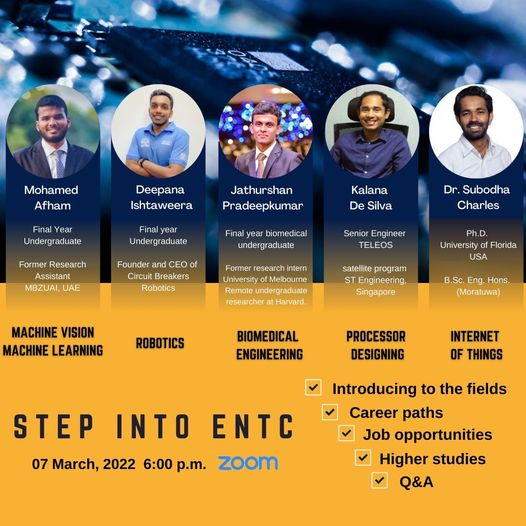𝗖𝗲𝗹𝗲𝗯𝗿𝗮𝘁𝗶𝗻𝗴 𝗜𝗻𝗻𝗼𝘃𝗮𝘁𝗶𝗼𝗻 𝗮𝘁 𝗦𝗣𝗔𝗥𝗞 𝟮𝟬𝟮𝟱
On Saturday, August 2nd, we witnessed an incredible showcase of student ingenuity at the SPARK Challenge, held in Colombo.
This event brought together some of the brightest young innovators tackling real-world challenges through sustainable and scalable engineering solutions. We are proud to announce this year’s winners:
Champions – Team Zypher
Project: BSFix – A Revolutionary Black Soldier Fly (BSF) Farming Unit
Led by Demitha Manawadu, Team Zypher introduced a compact, odor-controlled, and scalable BSF system to convert organic waste into animal feed and compost. Their solution combats methane emissions, supports SDG 13 (Climate Action), and promotes circular economy practices.
1st Runners-Up – Team Dyson Sphere
Project: SEIAN – Smart Energy Integration and Automation Network
Led by Rusula Oshadha Pathirana, this team designed an intelligent, fault-tolerant inverter system that maintains grid stability during outages and supports the growth of decentralized renewable energy systems.
2nd Runners-Up – Team Rysera
Project: URO MONITOR – Smart Urine Output Monitoring System
Led by Sahan Cooray, Team Rysera developed an IoT-enabled medical device to automate urine output tracking in ICUs and dengue wards—boosting accuracy, reducing nurse workload, and improving patient care in Sri Lanka’s hospitals.
Congratulations to all the winning teams for your innovation, teamwork, and commitment to engineering solutions that matter. The SPARK Challenge continues to be a launchpad for real impact!
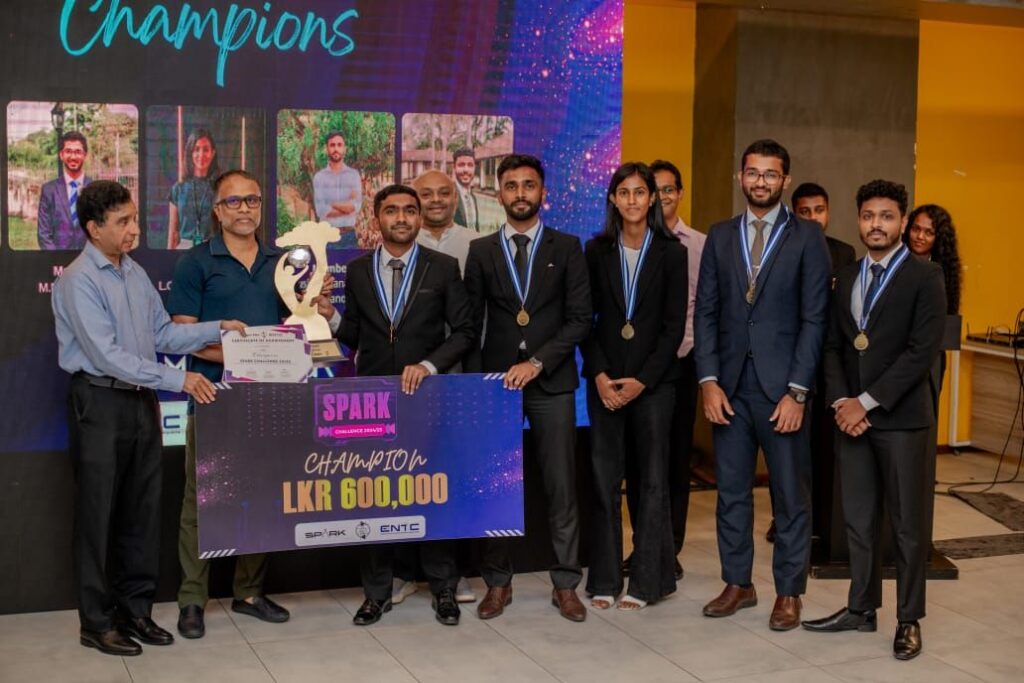
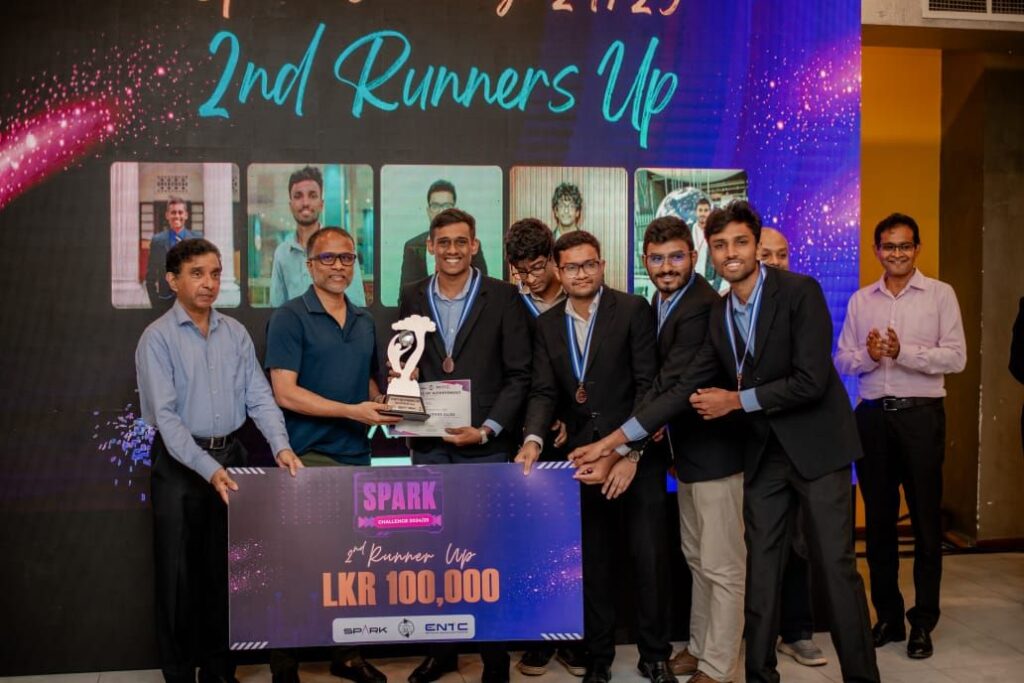
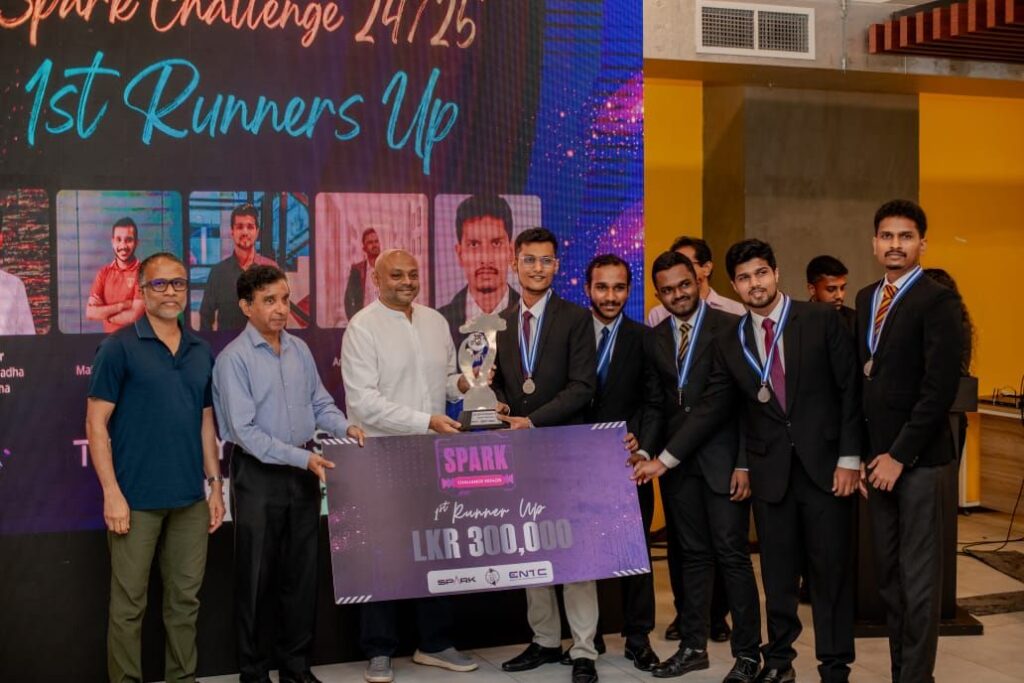
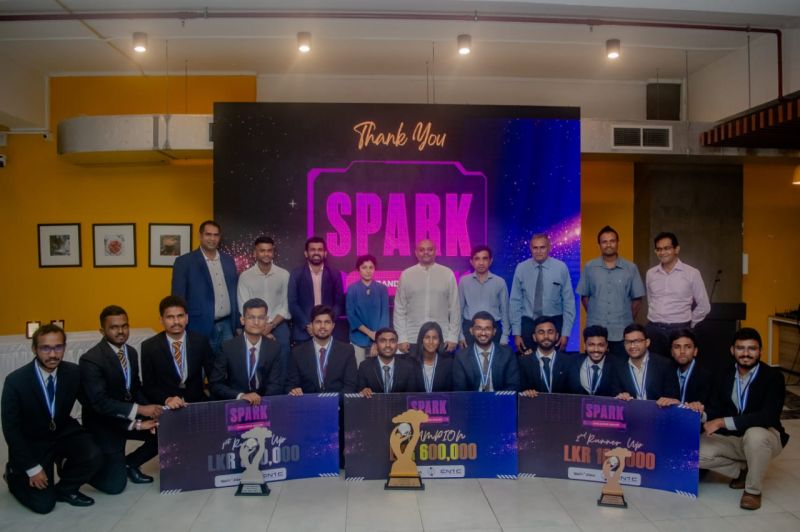
Inspiring Young Minds with Raspberry Pi!
Students from the Department of Electronic and Telecommunication Engineering, University of Moratuwa, conducted hands-on Raspberry Pi workshops at Jaffna Hindu College and Hartley College, sparking curiosity and innovation in the next generation.
With the guidance of our undergraduates, these young learners eagerly explored the world of computing—writing their first lines of code, experimenting with hardware, and unlocking new possibilities. The excitement in their eyes was the best reward! 🎉
As part of our commitment to sustainable and responsible innovation, we also donated Raspberry Pis to the schools, ensuring that the learning continues beyond the workshop. This initiative was proudly supported by SPARK at UoM, reinforcing our mission to empower future leaders through technology.
🔗 Together, we’re shaping a brighter, tech-driven future!
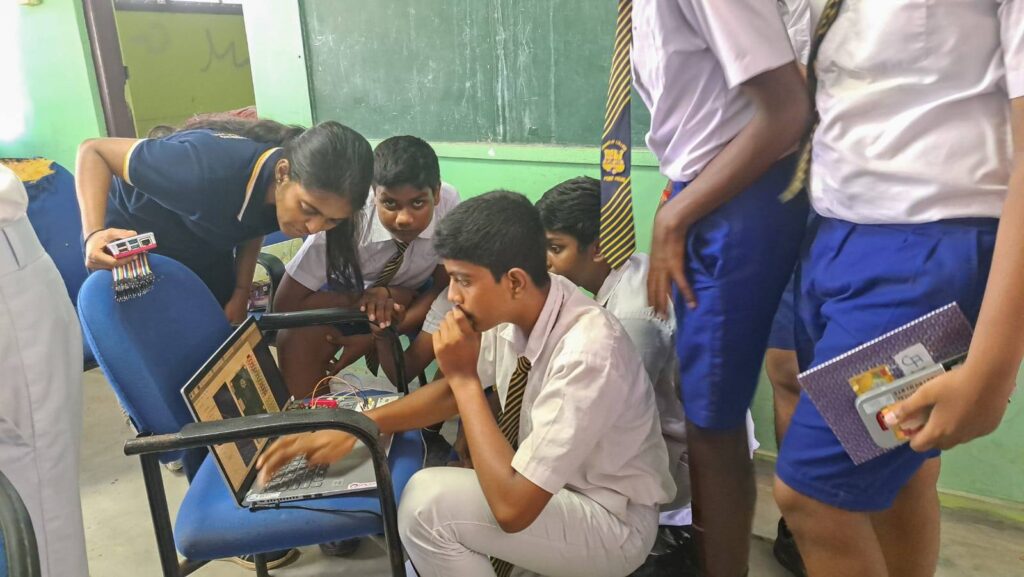



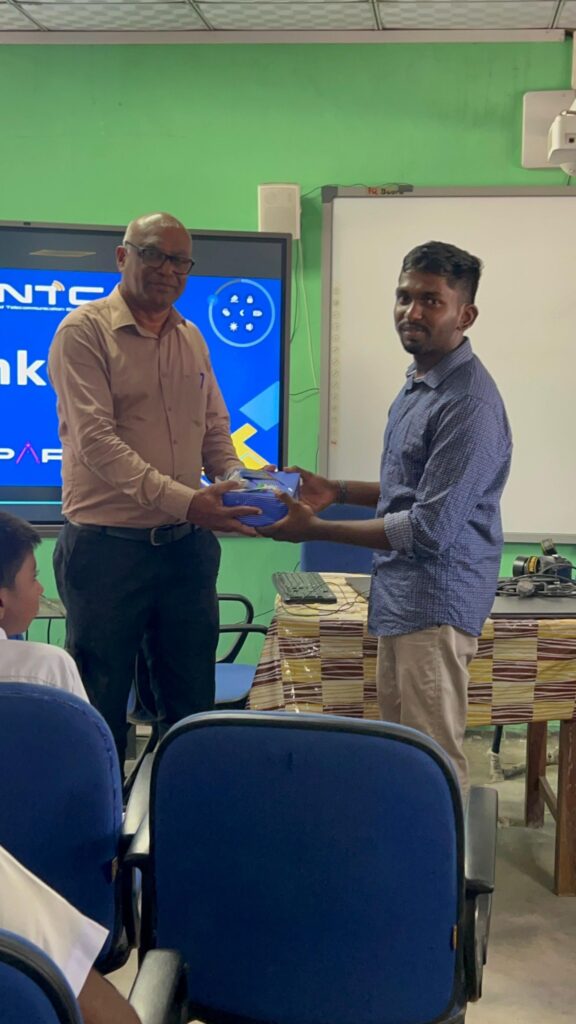
The Sri Lanka Robotics Challenge Final School Workshop and Closing Ceremony
The Sri Lanka Robotics Challenge (SLRC) Final School Workshop was successfully held on Wednesday, December 7th, 2022, at the Department of Electronic and Telecommunication Engineering (ENTC) of the University of Moratuwa. The workshop marked the culmination of a series of training programs organized to equip school students with the necessary skills to design a mobile robot for participation in the Sri Lanka Robotics Challenge.
The SLRC is the premier robot competition in Sri Lanka and has been organized by the ENTC for the 10th consecutive year. This year’s challenge has seen an impressive turnout of school students who have shown a keen interest in the field of robotics. The training program included a series of workshops that provided hands-on experience in designing and building a robot.
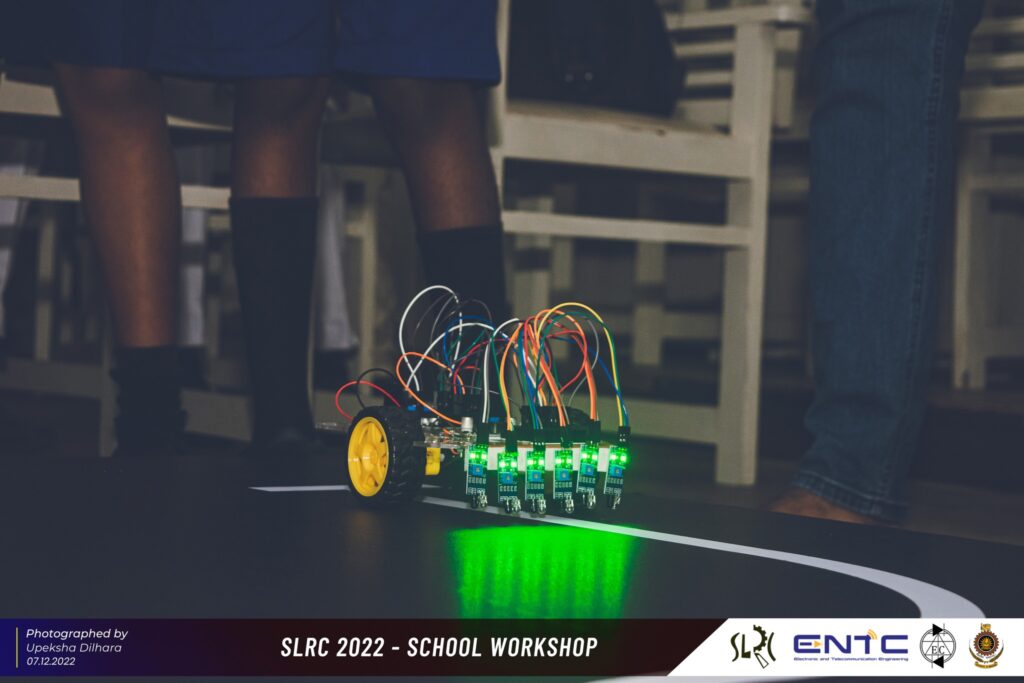
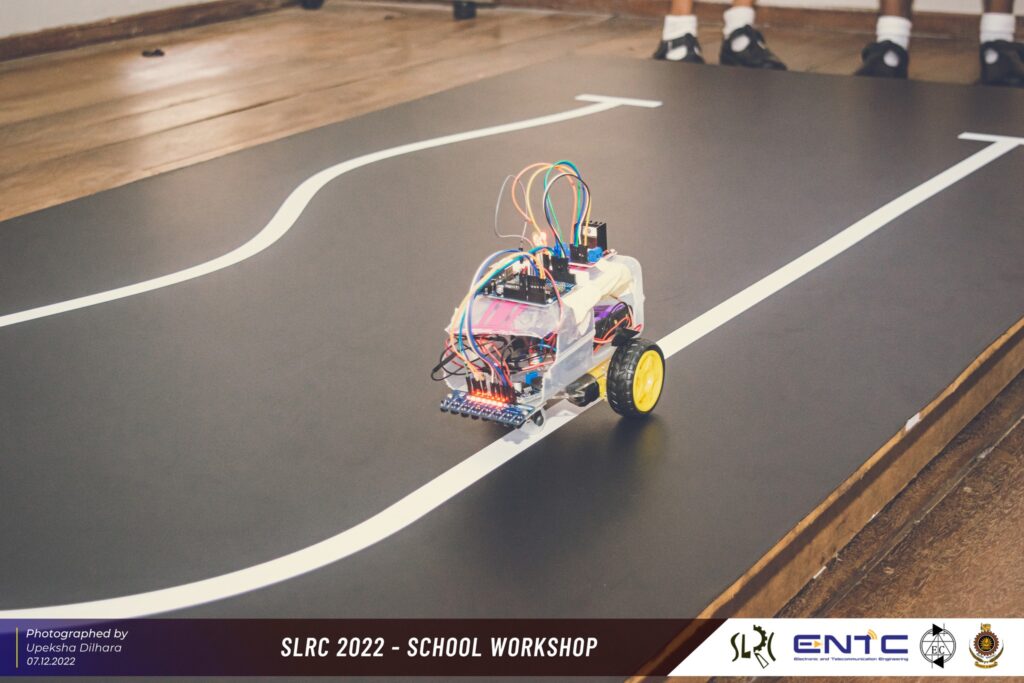
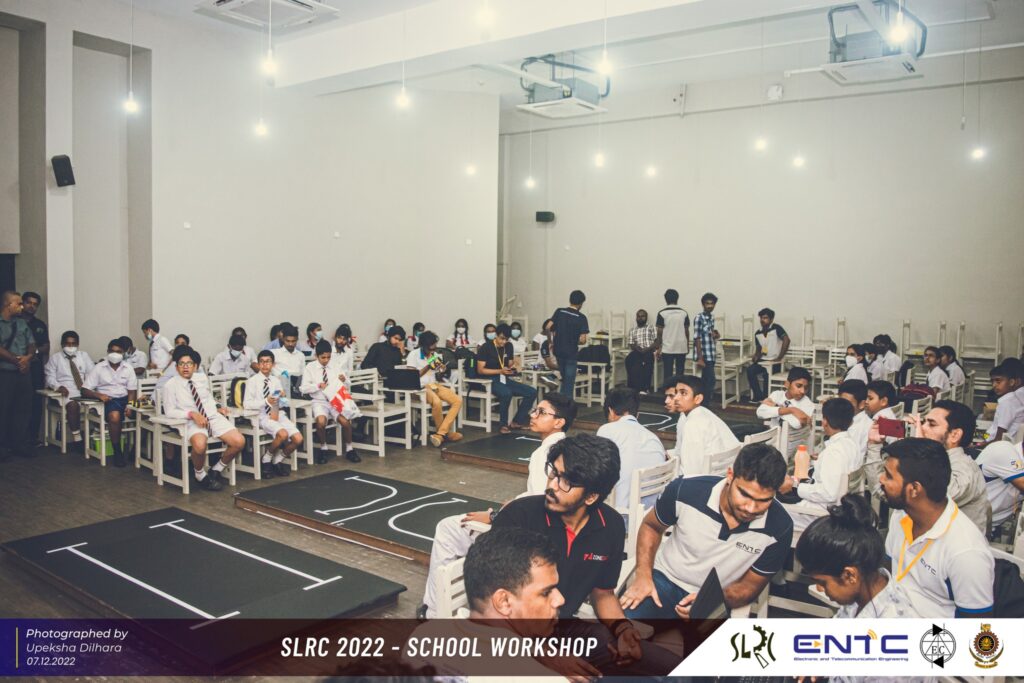
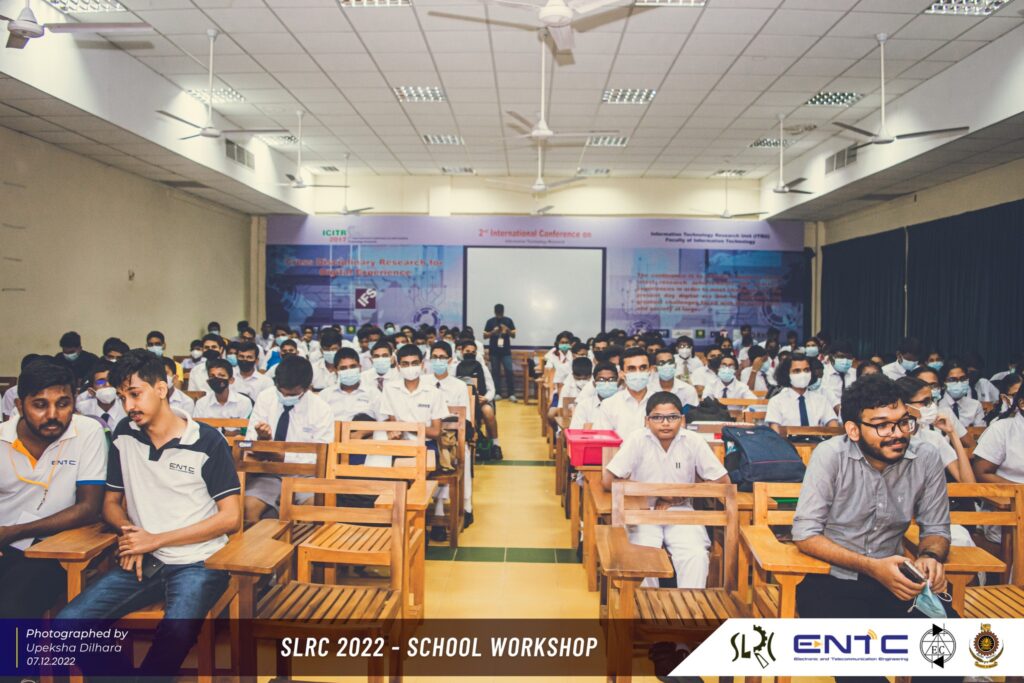
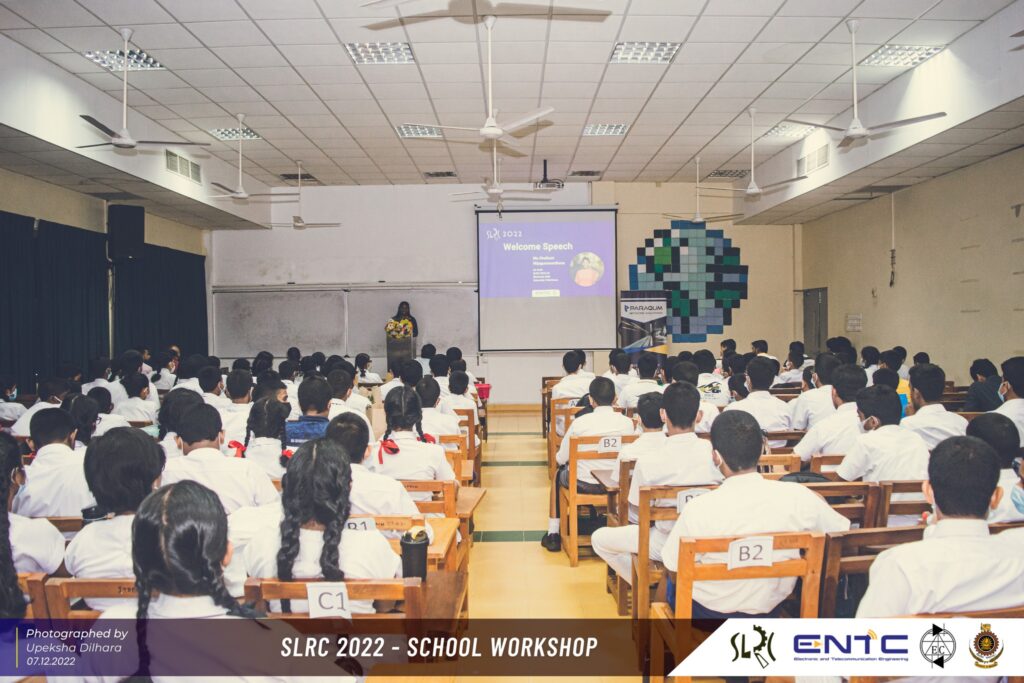
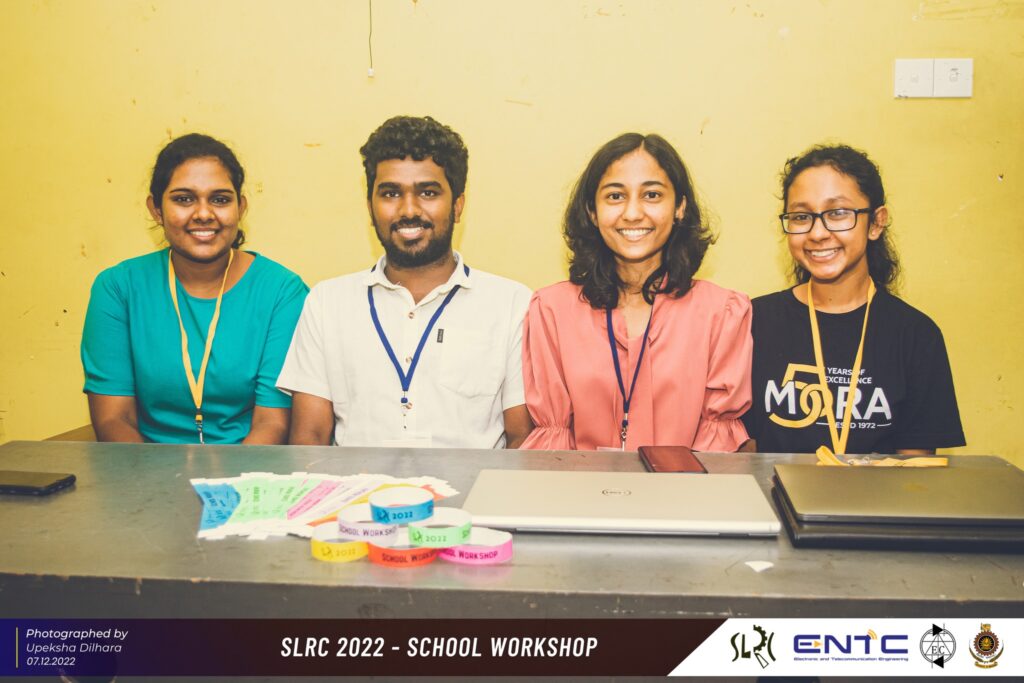
The final workshop was attended by parents, teachers, and students from various schools who had participated in the training program. The attendees were given the opportunity to witness the robots designed by the students in action. The workshop was followed by a closing ceremony attended by faculty members, who awarded certificates to the participants who had successfully completed the workshop.
Dr. Chamira Edussooriya, a faculty member who mentored a team from a school, spoke about the transformative experience that the training program had been for the students. He highlighted the importance of such programs in nurturing the talent of young minds and preparing them for the challenges of the future.
The SLRC Grand Finals are scheduled to take place in March 2023, and the participants are already looking forward to showcasing their skills on the big stage. The competition promises to be a platform for students to showcase their creativity, problem-solving skills, and teamwork abilities.
The SLRC has been a great initiative in promoting robotics education in Sri Lanka, and the University of Moratuwa is proud to continue to organize such events. The success of the SLRC training program is a testament to the growing interest in robotics among school students in Sri Lanka.
Read MoreClosing Ceremony of the Embedded Machine Learning for Edge Computing Training Program
The Embedded Machine Learning for Edge Computing training program, organized by the Department of Electronic and Telecommunication Engineering of the University of Moratuwa in collaboration with Skill Surf, concluded on Saturday, Nov. 20, 2022. The program was designed to equip participants with knowledge and hands-on skills on the topic of embedded machine learning for edge computing, which is an important emerging technology in the field of electronics and artificial intelligence, which is already gaining maturity.
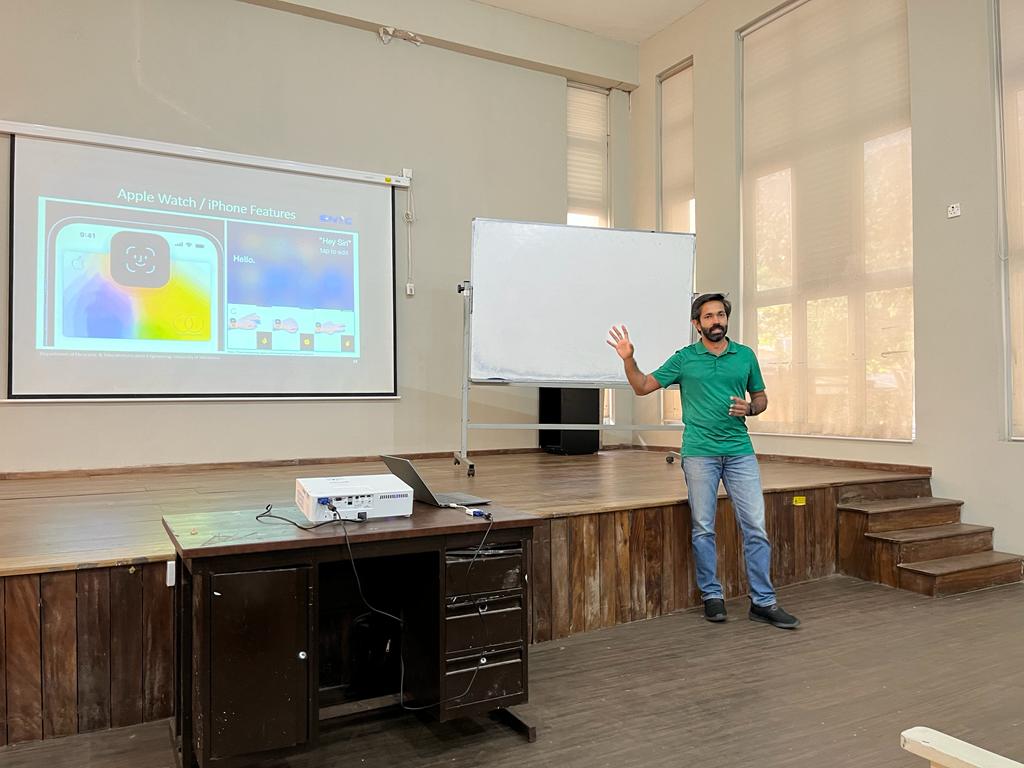
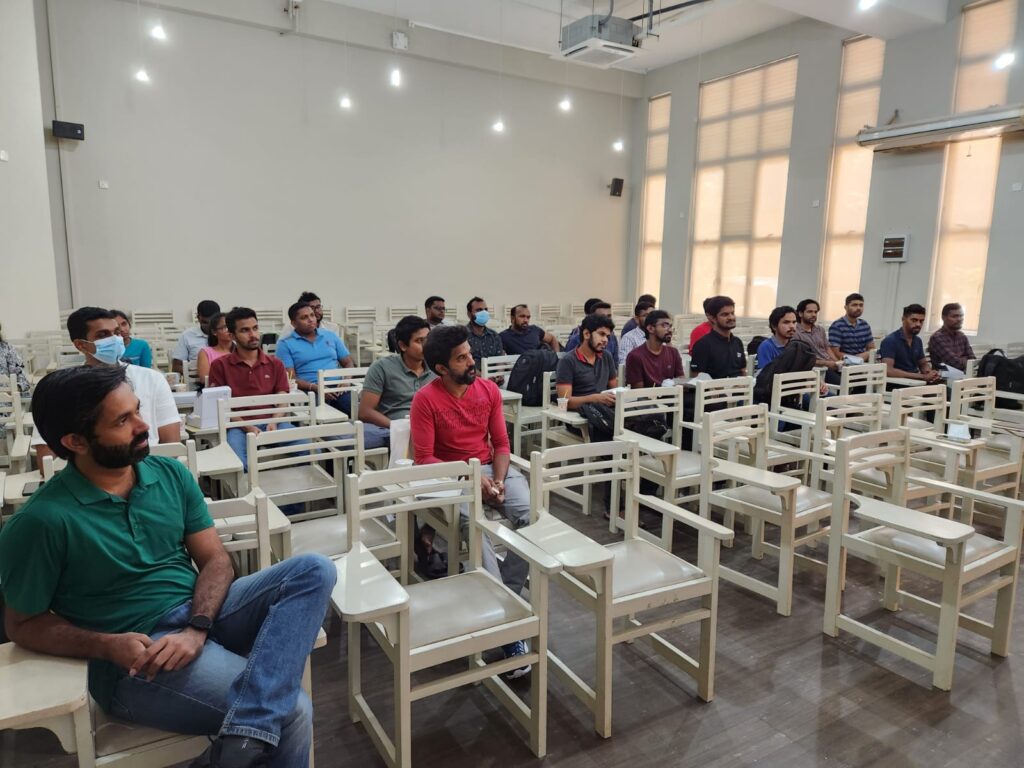
The training program lasted for eight weeks, comprising 16 sessions with project-based learning. The program was attended by a group of enthusiastic participants who were eager to learn and apply their knowledge in practical projects. Under the guidance of Dr. Subodha Charles, the lead course instructor, and other instructors, the participants were introduced to the fundamental concepts of embedded machine learning, including the various algorithms and tools used in the field. Throughout the course, the participants were exposed to various hands-on exercises, which helped them to apply the knowledge they acquired in real-world scenarios. The participants also had the opportunity to work on a final project, which allowed them to demonstrate their understanding of the topic.
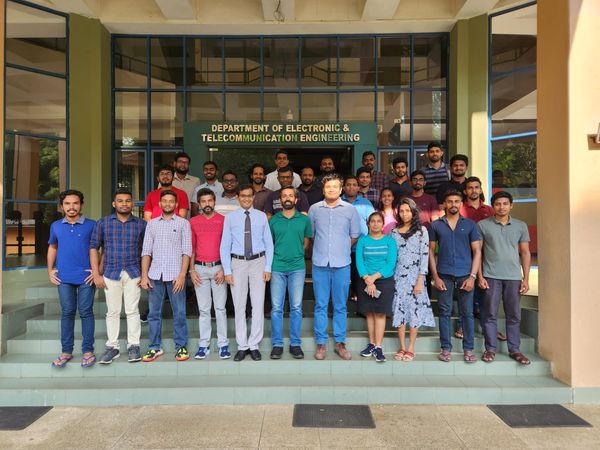
The conclusion ceremony was held on Saturday, Nov. 20, 2021. The event was attended by faculty members and the participants. The attendees congratulated the participants on their successful completion of the program and praised the efforts of the organizers and the instructor in providing a high-quality training program. Speaking at the ceremony, Dr. Subodha Charles expressed his satisfaction with the performance of the participants and thanked them for their commitment and dedication to the program. He also highlighted the importance of such training programs in providing individuals with the necessary skills and knowledge to excel in their careers. The Embedded Machine Learning for Edge Computing training program is one of several short courses offered by the Electronic and Telecom Engineering department of the University of Moratuwa in collaboration with Skill Surf. Stay tuned for more information on upcoming short courses and training programs.
Read MoreSPARK Pitching Sessions
SPARK project aims to drive projects that solve crucial problems that mankind faces such as climate change, food scarcity, and inequality in education though the application of engineering principles. All these are important aspects of the 17 Sustainable Development Goals (https://sdgs.un.org/goals). Approximately 35 student teams worked on developing solutions to problems that address one or more such goals. Ten groups were able to propose fully-developed ideas and make prototypes. This was possible after a long-term training provided by SAPRK with the involvement of foreign trainers.
As the culmination of this year-long process, the ten groups pitched their projects to an eminent panel of judges comprising Mr. Heminda Jayaweera, Mr. Fayaz Hudah, Mr. Chalinda Abeykon and Mr. Josh Robsen. This pitching session took place on July 24, 2022 at the Department of Electronic and Telecommunication Engineering in a vibrant setting with many students and staff members watching and deliberating about the possible impact of the projects.
Read MoreStep into ENTC
A session termed “Step into ENTC” was held on March 7, 2022, to educate the prospective students on the career opportunities and higher studies. The panel of lecturers, alumni, and final-year undergraduates conducted the session.
Mr. Mohamed Afham an alumnus now with Meta, NY, discussed about the path and opportunities in machine vision and machine learning. Mr. Deepana Ishtaweera with his background on robotics, robotic education, and start-ups talked about robotics. Mr. Jathurshan Pradeepkumar, a biomedical engineering alumnus now with Harvard, shed light on opportunities in biomedical engineering. Mr. Kalana De Silva, an alumnus attached to a large-scale telecommunication organization in Singapore, spoke about processor design. Dr. Subodha Charles, a staff member with expertise in cybersecurity and embedded systems, spoke about internet of things.
The panel showed a multitude of avenues to take in becoming an engineering scientist. The session turned out to be much informative to the participants.
